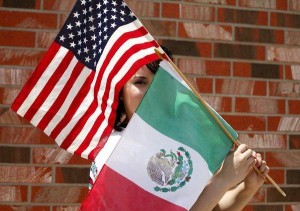![]() Hudak, John. “How to Reschedule Marijuana, and Why It’s Unlikely Anytime Soon.” The Brookings Institution. Brooking, 13 Feb. 2015. Web. 12 Aug. 2015.
Hudak, John. “How to Reschedule Marijuana, and Why It’s Unlikely Anytime Soon.” The Brookings Institution. Brooking, 13 Feb. 2015. Web. 12 Aug. 2015.
http://www.brookings.edu/blogs/fixgov/posts/2015/02/13-how-to-reschedule-marijuana-hudak-wallack
In the article “How to reschedule marijuana, and why it’s unlikely anytime soon” by John Hudak and Grace Wallack , the authors argue why marijuana is most likely to not be reschedule soon. The article also argues how The Controlled Substance Act is prohibiting medical marijuana . It states that in 2006 the FDA reaffirmed that they did not find any scientific studies supporting medical marijuana as schedule II. In July 2011 the DEA denied the petition for medical marijuana to be legalized stating that marijuana has no accepted medical use and would therefore remain in schedule I. The authors also state that if marijuana was to be rescheduled then it would complicate their production and prescription process. The drug would have to undergo testing and numerous regulatory requirements, “the outcome may not be what legalization advocates would want in the end.”
The article adds that Congress has the power to reschedule marijuana, “ether through new legislation specific to marijuana or through tailored amendments to the Controlled Substance Act. Basically the author states that if Congress wanted to they would have had already reschedule marijuana. The author then gives examples of proposed bills that have failed. The first bill that was proposed to move marijuana from a Schedule I to Schedule II was introduced by Representative Stewart McKinney (1981). In 2011 Representatives Ron Paul and Barney Frank introduced a bill to remove marijuana from the schedules entirely, and as usual “died in committee”. The author then adds that President Obama is contended that Congress has the responsibility to reschedule marijuana. According to the article “It is ironic that the president, who is so often criticized for overreaching his authority, is shrinking from the administrative power that Congress has granted him”. The author argues that even the President doesn’t want to be responsible for rescheduling. Lastly the author states that some in Congress “have been quite vocal about their opposition to administrative scheduling”. Also that the actor at the DOJ and HHS as well as the white House may be unwilling to spend political capital on this issue. This decreases the possibility of rescheduling marijuana.
The author states that the Controlled Substance Act is getting in the way of medical science. The law that identifies marijuana as a Schedule I Substance, “meaning it has a high potential for abuse and no current accepted medical use”. The author then states that the substance Scheduled II-V are still subject to varying degrees of control, but have a recognized medical use and can be dispensed with a prescription. The fact that the author states that marijuana, a Schedule I substance is high for potential abuse is debatable. Substances that are also classified II are as addictive. For example cocaine, morphine, and Opium are Schedule II substances and can be as addictive as marijuana. This is one of reasons why people disagree that marijuana should be used for medical purposes. Marijuana should be reschedule and The Control Substance act should be readdress considering medical marijuana.

